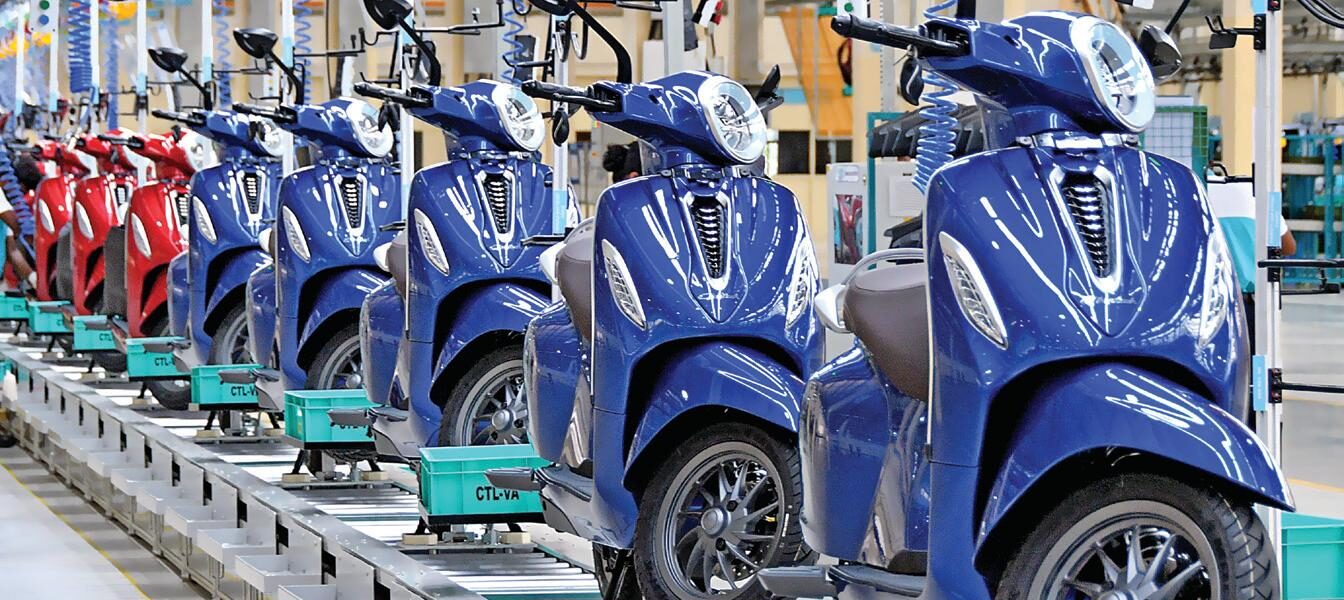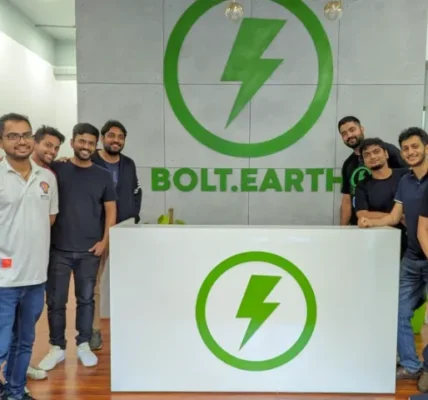Bajaj Auto is pushing up its efforts in the electric vehicle (EV) market for both two-wheelers and three-wheelers. After passing the phases of evaluating product performance in the actual world and customer reactions, it has planned additional releases and investments.
In a post-earnings call, the senior management of the Pune-based firm stated that it had set aside between Rs 400 and Rs 500 crore for investments in EVs in FY24. The money will be used to launch a new electric three-wheeler facility in Aurangabad and to create dies and moulds for the company’s planned electric two-wheelers, produced by Chetak Technologies, a newly established business.
After a delay of more than two years, Bajaj, which had previously dominated the market for three-wheelers powered by internal combustion engines, joined the electric three-wheeler industry in a limited way, with operations concentrated on just two towns.
While the passenger electric three-wheeler was introduced in Agra, the freight type was introduced in Pune. Maxima Cargo E-TEC’s two cargo models have been approved for incentives worth Rs 89,000 and Rs 111,505 under the FAME-2 programme. The RE E-TEC passenger model gets a Rs 89,000 incentive.
“Our reaction has been amazing, especially for the passenger variety. The vehicle’s driving range has gone above and beyond expectations. We had intended to keep the launch under wraps for three to six months. Rakesh Sharma, executive director of Bajaj Auto, said, “We will begin ramping up manufacturing in September.
Comparing other automobile categories in India, the ICE three-wheeler market has shown the quickest growth. It increased by 90% during the June quarter. Bajaj controls 68% of this market. Mahindra & Mahindra holds the top position in the market with a 6% market penetration for electric three-wheelers.
Beginning this year, more variations will be added to the Chetak, Bajaj’s first model in the electric two-wheeler market. Before slowing down in June due to the central government’s reduction in subsidies, the firm had tripled Chetak’s manufacturing to 10,000 units a month in May.
Compared to FY22, Chetak had a four-fold rise in sales volume to 36,260 units in FY23. Bajaj is expanding the reach of Chetak to new cities after closing off the previous year with a distance of 105 dealers across 84 cities.
According to information provided by the Society of Manufacturers of Electric Vehicles, Chetak concluded the previous year with a 5% market share in the electric two-wheeler market. Ola Electric led the market with a share of 21%, followed by Okinawa with 13%.
Bajaj Auto, one of India’s premier automakers, has declared its ambitious commitment towards the Electric Vehicle (EV) segment by lining up an investment of ₹500 crore for 2023. This decision represents a substantial push towards electric mobility, addressing the country’s shift to environmentally friendly transport solutions and increasing consumer demand for EVs.
For many years, Bajaj Auto has been India’s automotive innovation leader. A wide range of products is available to cater to the varying demands of different market segments. The announcement of a ₹500 crore investment in the EV sector showcases Bajaj’s plan to prioritize the burgeoning EV market.
The automotive industry in India is rapidly evolving, with a clear shift towards green mobility. The landscape for electric vehicles has been shaped by government policies promoting their adoption and increased consumer awareness of their environmental benefits. Bajaj Auto is thus aligning its strategies to capitalize on this shift, intending to deliver top-notch EVs that cater to Indian consumers’ needs and preferences.
The announced ₹500 crore will be strategically utilized to boost Bajaj Auto’s EV initiatives. This substantial investment is expected to be funnelled into various areas such as research and development, production capacity expansion, battery technologies enhancement, charging infrastructure setup, and marketing initiatives.
The company intends to use a portion of this fund to develop next-generation EV models with improved range, battery life, and performance. The goal is to make electric vehicles a viable alternative for all consumers, whether they seek two-wheelers or four-wheelers.
Additionally, Bajaj plans to expand its existing manufacturing capacities to meet the projected demand for its EVs. This expansion is expected to generate new employment opportunities, thereby contributing to the country’s overall economic growth.
Part of the strategic plan involves forming alliances and partnerships with other key players in the EV ecosystem. Bajaj Auto is exploring collaborations with local and international battery manufacturers, charging station providers, and tech firms working on EV-specific solutions like battery management systems, connectivity features, and autonomous driving technologies.
These collaborations will allow Bajaj Auto to integrate the best available technologies into their vehicles and provide an enhanced driving experience to their customers. They also offer a promising avenue to overcome one of the critical challenges in the EV sector: establishing a robust charging infrastructure.
Bajaj Auto’s ₹500 crore investment plan underlines the company’s commitment to transitioning towards sustainable mobility. This decision represents a strategic step towards the future of green transportation in India and solidifies Bajaj’s position as a leader in automotive innovation.
This forward-looking strategy, combined with the strong government support for EVs, spells a bright future for electric mobility in India. The benefits of this investment will be reaped by Bajaj Auto in terms of market share and profits and contribute significantly to the broader goal of reducing India’s carbon footprint and promoting sustainable living.
With this bold move, Bajaj Auto has firmly planted its foot on the EV pedal, ready to accelerate into the future of sustainable and efficient transportation.







